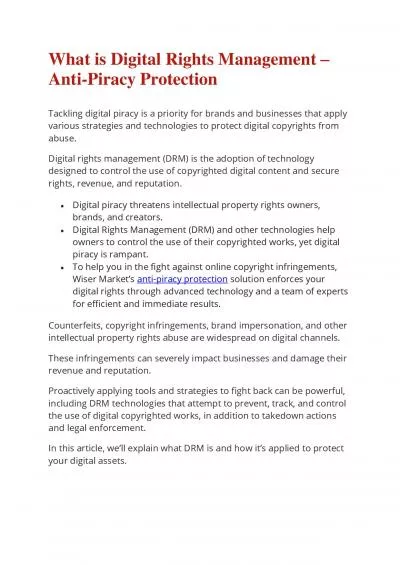PDF-Brand Protection in the Metaverse
Author : olbrandprotection | Published Date : 2022-04-11
Wiser Market offers proactive online brand protection services worldwide Whether you wish to fight counterfeiting protect your domain name prevent trademark copyright
Presentation Embed Code
Download Presentation
Download Presentation The PPT/PDF document "Brand Protection in the Metaverse" is the property of its rightful owner. Permission is granted to download and print the materials on this website for personal, non-commercial use only, and to display it on your personal computer provided you do not modify the materials and that you retain all copyright notices contained in the materials. By downloading content from our website, you accept the terms of this agreement.
Brand Protection in the Metaverse: Transcript
Download Rules Of Document
"Brand Protection in the Metaverse"The content belongs to its owner. You may download and print it for personal use, without modification, and keep all copyright notices. By downloading, you agree to these terms.
Related Documents














